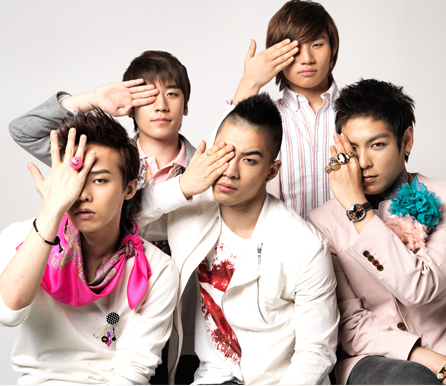![]()
Somebody took me up on my
January 23rd suggestion:
I’ve been reading up some more on the career of “They,” the Berkeley Latinx / Chicanx Studies major and campus activist currently in the pokey on charges of murdering one woman, attempting to murder another, and home invading a third.It seems like a story that a Berkeley journalist like Michael Lewis could use to illustrate How We Live Now.
From
Buzzfeed, an article by Jessica Testa about the media coverage of the arrest of
Pablo “They” Gomez for (allegedly) murdering that
poor hippie chick folksinger in Berkeley.
(I usually give the title of articles, but I worry that if I look at the flashing graphic on Buzzfeed that contains the headline for more than 1.5 seconds I will go into epileptic shock, and then the FBI will have to arrest Buzzfeed. So I don’t know exactly what the title is.)
The Unz Review’s Steve Sailer later raised similar questions about Gomez’s motive (with a dramatic emphasis on pronouns). “How much evidence is there that They’s stabby outburst consisted of hate crimes?” Sailer wrote. “Was They motivated by hatred of whites, the female sex, heterosexuals, or what?” …
Good questions, if I say so myself.
But the partisan drama of both the Yiannopoulos riot and the Gomez case has overshadowed a more subtle truth: … Berkeley was not immune to tensions created by the rise of white nationalism, or to battles over political correctness.Emilie Raguso [a reporter at Berkeleyside] saw that firsthand. As she continued following the case … she moderated and responded to dozens upon dozens of reader comments. The general idea behind most comments, as laid out by username “xlrq”: “Who the hell cares what pronoun he/she/it prefers to be called by? I’ll bet his victims would have preferred not to be stabbed.” …
“We’re in Berkeley, so I was not used to seeing all of the anger around these issues. It just took me aback. This is really where we are?” she said. Raguso thought the pronoun change was uncontroversial, and that Gomez should be identified by the right pronoun, no matter the allegations.
These long days of moderating — and participating in — a gender pronoun debate left Raguso struggling to recognize the community she covered. …
“I was really surprised — this is the Berkeley community,” she said, again emphasizing the name historically synonymous with young progressive radicals who love free speech and open debate. “There was a lot of anger on both sides about how Pablo should be referred to.”
… there’s another reason people aren’t speaking out on Gomez’s behalf.
In addition to identifying as nonbinary (neither male nor female), Gomez identifies as pansexual, or pan — a sexuality similar to bisexuality, except that the attraction is to all gender identities, not limited to male or female. Drawing attention to Gomez’s case could reinforce harmful stereotypes about queer people, who, for decades, have been cast in the media as dangerous or depraved.
The organization GLAAD tracks these media portrayals of queer people, to show how often bisexual and transgender people in particular end up being depicted as killers, villainous sociopaths, or sexual deviants. According to GLAAD, the television industry has greatly improved in writing LGBT characters; film has taken longer. But portrayals in the news media rarely catch GLAAD’s attention anymore, the media watchdogs said. Most traditional journalists are familiar with the recommended practices.
If the pronoun issue had never come up, would the far-right have latched on?
Fred Fejes, a journalism professor at Florida Atlantic University who has studied gay and lesbian media portrayals, said it’s no longer acceptable for reporters to treat “sexuality as an aberration,” …
After the days-long pronoun crisis, Raguso said she wondered whether she could or should have handled it all differently. Fred Fejes maintained that unless Gomez’s gender identity “was an important element in the story, unless it figured in somehow to what was going on, it shouldn’t have been mentioned.”
GLAAD’s Nick Adams, director of programs for transgender media, said while he agrees that reporters should not “bring up the fact that [people] are LGBTQ unless it is relevant to the case at hand,” he said in a case like Gomez’s, “you don’t really have much choice to bring their gender identity into it …”
But both Fejes and Adams acknowledged this is an uncommon case in uncharted territory. This central question — how to respect a pronoun identity without drawing undue attention to it — hasn’t really come up before. And so Raguso’s question remains: If the pronoun issue had never come up, would the far-right have latched on? Was gender the one thing that tipped Gomez’s story over the precipice from local news to viral political content?
![]() Not long after that tipping point, someone said to Raguso, “‘You’ve really done Pablo a disservice, because if you had just called Pablo ‘he,’ then it wouldn’t have gotten this national attention. Ann Coulter isn’t going to jump on the bandwagon and start firing up people up about it,’” she recalled.
Not long after that tipping point, someone said to Raguso, “‘You’ve really done Pablo a disservice, because if you had just called Pablo ‘he,’ then it wouldn’t have gotten this national attention. Ann Coulter isn’t going to jump on the bandwagon and start firing up people up about it,’” she recalled.
“Well, I guess that is a point,” Raguso said. “Maybe I did do Pablo a disservice.”
Pronoun Crisis would be a good name for a K-pop band.
Read the whole thing there. Just avert your eyes until you can scroll down past the potentially lethal title graphic.
Is this article as serious as it tries to sound? Or is it a big put-on?
[Comment at Unz.com]















